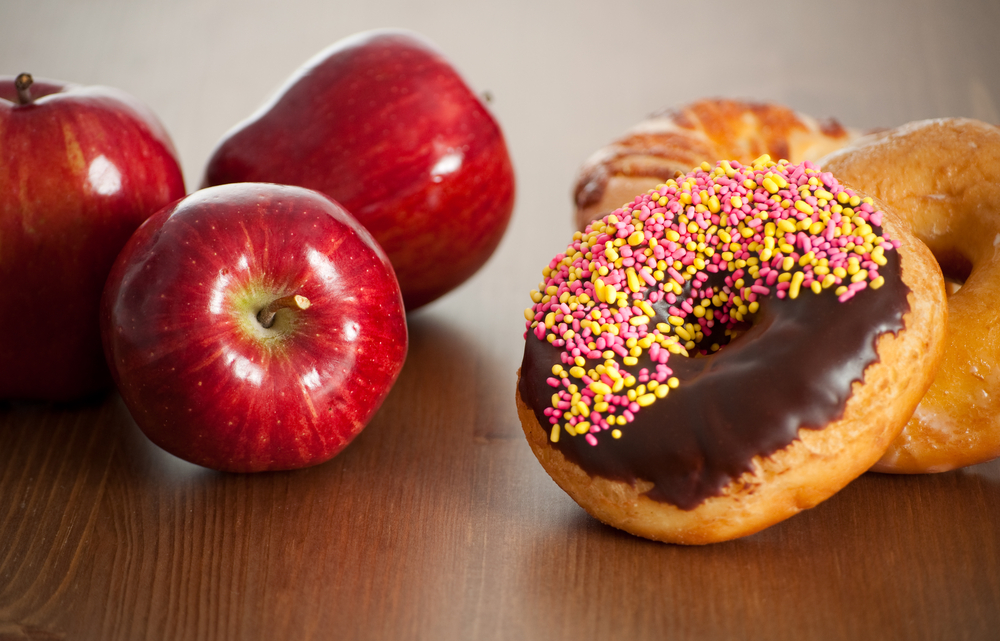Whether spending time on the go or staying sedentary indoors, eating snacks throughout the day has become a conventional habit. The latter has become more truthful for many people due to our current state of the world.
The COVID pandemic has made us accustomed being confined to our homes, where there’s easy access to food pantries and refrigerators full of the foods we enjoy.
In America, the three meals a day model has been replaced by frequent snacking patterns as it’s perceived as more convenient than preparing food.
The average person now has about 4-5 snacks in day, with another 3-4 beverage snacks included between meals.
Long term habits often transform into lifestyles, which snacking can have hazardous health consequences if someone becomes adapted to them permanently.

Why Snacking Should Always Be Avoided
The food industry has been has been observing the growing trend of snack foods becoming a staple within the diet over the past decade.
The snack industry is currently valued at $427 billion and is set to rise steadily within the next 5 years as demand remains steady.
Demand for snacks has transformed from previous decades as the population has become health conscious. Healthier snacks are now heavily promoted, such as yogurt, berries, exotic fruits, seeds, and nuts.
These ‘healthier’ foods might be better for you because of nutrient content or levels of satiety from consuming them, but the marketing for these products can fool even wise consumers.
Understanding how the hormone insulin works, it’s elevated in the blood upon digestion of almost any type of food.
Consuming a small snack causes an insulin spike that creates a drop in blood sugar, which stimulates feelings of hunger and low energy shortly afterwards.
Whenever insulin is repetitiously elevated, this can become a precursor for insulin resistance. Insulin resistance is strongly tied to metabolic syndrome and other dysfunctions in the body.
This is why snacking should be avoided, the negative impact of frequent eating causes hormonal imbalances that counteracts the healthy snacks being consumed.
How to Avoid Snacking
As mentioned earlier, the average person has a habit of consuming 4-5 snacks between meals during the day. There are various types of snacks available, but the ones that have been growing popular are functional snacks.
Functional snacks are processed but have healthier macronutrients and ingredient origin than your typical snack. This would include high protein bars, organic & non-GMO, gluten free, and low carb snacks found in most convenient and supermarket aisles.
These foods can become a good supplement to an otherwise healthy diet, but can ruin your health from consuming them too frequently. Instead of keeping them as snacks, it would be better to add them to one of your meals in the day.
Adding healthy snacks to your meal not only gives your more well-rounded nutritional profile to your diet, but will leave you more satiated feeling with little to no blood sugar crash afterwards.
The second method to eliminate snacking is to just get them out the house, out of sight out of mind. Clear your pantry of foods that are big temptations that will cause you to binge on empty calories.
If you’re living with someone who keeps a lot snacks while you’re attempting to eat healthier, keep the snacks away in a cabinet where they’ll be out of your eyesight.
The best way to avoid snacking is to stay busy and keep productive. Keep a scheduled list of tasks near you so your mind is focused on accomplishing activities instead of consuming food. Boredom is often confused with hunger.
Lastly, if you want to stop snacking try to avoid TV watching, especially for long periods of time.
The reason for this is because of the TV’s signals that are emitted to the brain when you watch it. Watching TV puts the brain into an Alpha wave state within 30 seconds, which makes you high susceptible to suggestions being transmitted.
This is why TV commercials are placed in all your favorite programs and broadcasts, food cues are placed in your mind that you’ll later act upon. Individuals watching TV tend to consume more food than individuals that don’t.
The Wrap Up
Snacking is a very common habit that the average person considers a part of their healthy lifestyle. Snacks can be healthy, however the habit of snacking isn’t since it creates dependency of food for comfort, energy, and stress relief. Combining snacks into balanced meals is a much healthier option, as well as eliminating patterns of behavior that would create those bad eating habits.


Leave a Reply
You must be logged in to post a comment.